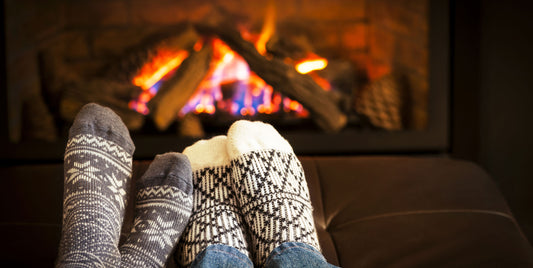The holidays are just around the corner. Two things often collide during this season: anxiety and sugar. The rush of the season can stress us out, while sugary treats become more available wherever you go.
Unfortunately, that combination can create a vicious cycle—because some research suggests that the more sugar you consume, the more anxious you may feel.*
What the Research Says About Sugar and Anxiety
There’s a lot of research to back this theory. A 2021 study found that adults with low anxiety ate less sugar than individuals who had high anxiety.1 According to a new study that just dropped this year, sugar consumption can also increase the risk of anxiety in children as well.2 This is consistent with the results from a 2022 study showing that children and adolescents aged 7 to 17 who drank more sugar-sweetened beverages had more social anxiety.3
What’s to blame for the vicious cycle that can ensue? One culprit is the reward pathway in the brain.
Here’s how it works. If you are stressed and feeling anxious then eat a couple of donuts, the reward pathway lights up and, for a moment, the anxiety dissipates. But when you encounter stress again, the reward pathway gets stimulated which causes the sugar craving to kick in. Over time, the pathway becomes trained to need sugar every time you feel stressed.1
Another reason the sugar stress cycle can be hard to break is because powerful hormones such as cortisol, a key stress hormone, are reduced, but later spike, making you feel like you are riding on an emotional roller coaster.4 The reward pathway convinces your brain that the only way to stop the roller coaster ride is to eat more sugar.
The only way to get off that sugar-anxiety roller coaster is to stop the reward pathway from lighting up and create a new habit.
Eat to Beat Anxiety
Blood sugar and anxiety can go hand-in-hand so to reduce anxiety means you need to balance blood sugar levels. According to the Cleveland Clinic, the best way to balance blood sugar is by eating a healthy diet that contains fruits, vegetables, and high-fiber foods and is low in highly processed foods.5 Processed and “fast” foods often contain high amounts of sugar. The Cleveland Clinic also recommends getting enough sleep, making time for movement, and drinking lots of water.
Sugar-sweetened drinks such as sodas and sweetened coffees have a ton of sugar so reducing intake of those drinks may also help. Cut back on desserts and sweet snacks by making them a true treat for when you’re already feeling good.
Reducing sugar intake isn’t easy, especially during the holidays. But with all emotional wellness—including stress and anxiety—managing your diet can do wonders. Reduce the sweet foods, and you’ll see sweet results for your physical and emotional wellness.
For more tips on nutrition, mindful wellness practices, and how to build a bedrock of wellness that lasts, follow us on Facebook @kalvits and Instagram at @kalvitamins!
References
- Kose J, Cheung A, Fezeu LK, et al. A comparison of sugar intake between individuals with high and low trait anxiety: results from the NutriNet-Sante Study. Nutrients. 2021;13(5):1526. https://www.ncbi.nlm.nih.gov/pmc/articles/PMC8147234/
- Xie X, Li Y, Zhang Y, et al. Associations of diet quality and daily free sugar intake with depressive and anxiety symptoms among Chinese adolescents. Journal of Affective Disorders. 2024;350:550-558. https://www.sciencedirect.com/science/article/abs/pii/S0165032724001113
- Liu J, Chen T, Chen M, et al. Sugar-sweetened beverages and depressive and social anxiety symptoms among children and adolescents aged 7-17 years, stratified by body composition. Frontiers in Nutrition. 2022;9. https://www.frontiersin.org/journals/nutrition/articles/10.3389/fnut.2022.888671/full
- Tyron MS, Stanhope KL, Epel ES, et al. Excessive sugar consumption may be a difficult habit to break: a view from the brain and body. J Clin Endocrinol Metab. 2015;100(6):2239-2247. https://www.ncbi.nlm.nih.gov/pmc/articles/PMC4454811/
- Cleveland Clinic. How to break your sugar addiction. Health Essentials. 2023;Mar 17. https://health.clevelandclinic.org/how-to-stop-sugar-cravings




